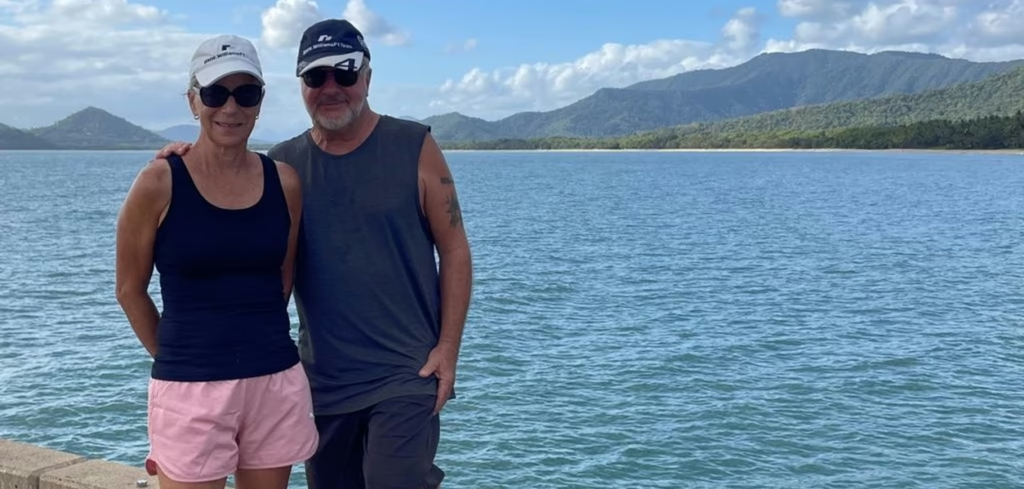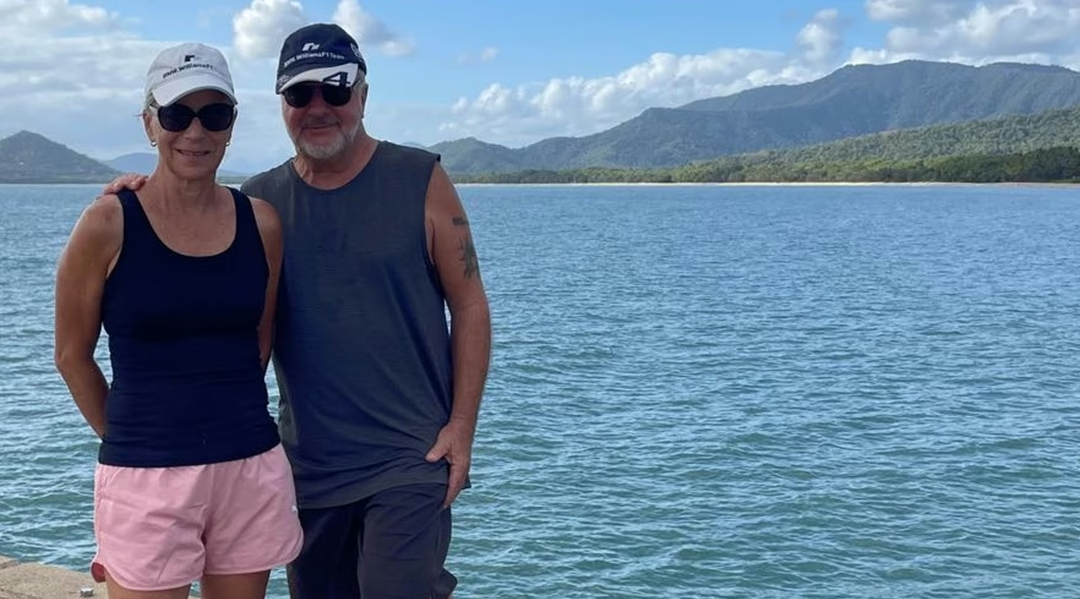
Are you dreaming of a sea change or a tree change? You’re not alone. Many Australians love the idea of moving to the coast or a country block. But whether or not you can make it work is the real question. Would moving from your current neighbourhood really improve life in retirement? And does it make financial sense? In today’s real-life scenario, we learn how Keith and Cathy made the change. We’re also sharing the top ten retirement destinations according to a recent AMP/Citro report. And we pose the three most important questions you will need to address if you think a major relocation might ensure the retirement ‘good life’.
Meet Keith and Cathy
Keith and Cathy used to holiday from time to time in Palm Cove, where their daughter had an Airbnb. They had a dream of retiring there from suburban Melbourne at some stage. Then the Covid pandemic landed, they were locked up during a cold winter and as Keith put it, the ‘dream’ became a ‘want’.
They decided to make the move when a suitable block became available, one street from the beach, with cafes, shops, and a pub also nearby. Although they did manage to inspect the block (between lockdowns), they needed to select builders, fittings and finishes online.
‘We had to make decisions on the hop,’ says Keith. “We also needed to fund the build and with most of our money in super and our Melbourne home, this was tricky.’
Luckily they sold their Melbourne home through a single enquiry, so much of the burden of inspections, marketing and auction costs were alleviated.
Has the move worked?
‘We now enjoy a daily walk beside the beach in a beautiful climate rather than on a footpath in Melbourne in the cold’ says Keith with a laugh.
On a serious note, the move has been a very positive one for both of them. They built a home that accommodates adult children and their grandkids so they see family regularly, citing Jetstar $89 airfares as a great incentive. They both love living in a town with no winter. Their neighbours are also retirees who take time to make friends and socialise, so life is good.
If there is a downside, Keith talks about a few people who moved to Palm Cove from Sydney, Adelaide or Melbourne and then returned as the summers are ‘brutal’ with humidity day in, day out. It’s fine for those with a pool and air conditioning, but tough otherwise Keith notes.
Do they have any advice for others?
For those who might be thinking of moving, Keith suggests that it is important to spend time in the new locale, getting a feel for the area and the people. And if you do wish to continue to work, the hospitality and building and construction industries are crying out for people. Tradies can name their own price, he tells us.
Which postcodes made the top ten?
Published in Citro, an online newsletter supported by AMP, the following towns were selected on a basis of affordability for both house buyers and renters. They are also close to reasonable medical amenities and leisure and dining options. The following ‘top ten’ list includes the median house price as well as indicative rent per week. By way of a yardstick for a median property (according to Property Update) in March 2025:
- The median dwelling price for Australia now sits at $820,331
- The median dwelling price for our combined capital cities now sits at $900,629
- The median dwelling price for our combined regional towns sits at $666,830
So it’s fair to say that the ‘top ten’ list, with the exception of Rosebud in Victoria, errs on the side of affordability.
Where to retire in Australia?
1. Armidale, NSW: median dwelling price $450K; median weekly rent $444
2. Ingham, QLD: median dwelling price $235K; median weekly rent $392
3. Maryborough, VIC: median dwelling price $352K; median weekly rent $381
4. Hervey Bay, QLD: median dwelling price $637K; median weekly rent $578
5. Belconnen, ACT: median dwelling price $522K; median weekly rent $553
6. Rosebud, VIC: median dwelling price $777K; median weekly rent $567
7. Mandurah, WA: median dwelling price $657K; median weekly rent $596
8. Wallaroo, SA: median dwelling price $449K; median weekly rent $410
9. Launceston, TAS: median dwelling price $524K; median weekly rent $487
10. Echuca, VIC: median dwelling price $586K; median weekly rent $639
(Source: Citro, AMP & Core Logic. Ranked by comparative value for money and ease of access to general lifestyle opportunities. You may wish to check out a fuller list of options around the country which is published here.)
Three questions to ask yourself
Relocating is not for everyone, as witness the people Keith mentioned who lasted a year or two and then headed back down south. But others do successfully relocate. What’s their secret? There are many factors involved, but the following three questions will help you to scope the type of accommodation and location that could work best for you, as you move into your 60s, 70s and beyond.
1. Why would you want to move?
There is usually more than one reason for someone to make a move. Keith said he and Cathy were keen predominantly from a lifestyle perspective. But others may wish to move closer to friends or family, to downsize from a larger suburban home to a lower maintenance apartment or maybe to live in a place with greater natural beauty. And then there are the financial reasons. Since the Downsizing Contribution legislation was introduced in 2018, many retirees have significantly boosted their super by adding money gained from the sale of a home. Others may not choose to use this strategy but will improve their debt position by using sale proceeds to pay down a mortgage. Whether your reasons are related to lifestyle, emotional needs or financial security, it is important to recognise which are the most important, in order to prioritise them as part of the very big decision of staying or moving. For those who rent in retirement, lower regional rents may mean a more affordable life. But this only works if the savings you achieve are not eroded by higher transport or medical costs.
2. Does everyone involved agree?
Whether a single or partnered, life is usually easier when your nearest and dearest endorse your decisions. It doesn’t mean that you can’t do something if family don’t agree, but if you are a couple and one is keen to relocate and the other is not, there’s some work to do. That’s when the ‘test’ (below) might help you both sort your thinking and priorities. Moving anywhere is stressful in itself, without adding arguments and ‘I told you sos’ to the situation. Keith acknowledges the importance of family support:
“We could not have made the big move without the kids’ blessing. We had big guilts about being selfish and leaving everyone. Thankfully they all encouraged us. It was hard as all four of our kids and our now 10 grandchildren lived locally and would always drop in. The other bad thing was that we had to forgo watching grandchildren play their sports on the weekends which we loved. The great thing now is that instead of quick drop bys they generally come stay with us for a week or two. So in other words, less frequency of visits but more quality now and doing meaningful things together creating memories rather than drop in coffee visits. “
3. Do you have the time and resources to test the new neighbourhood?
Many towns and cities are wonderful on holiday, when the sun is shining, you have spare cash in your pocket and the time to take in the fun aspects. Such places can seem less welcoming in the middle of a storm, when it’s just another week, and the novelty has faded somewhat. That’s why visiting at least once, or, better still, more often, makes sense. You get to see a new neighbourhood warts and all, you can test the facilities, rate the local council’s efforts, and maybe meet some locals who share what works and what doesn’t, based upon their lived experience.
Hopefully this overview has helped you consider some of the many factors involved in the decision to relocate. Modelling the effect of such a move on your future retirement income is a great way to confirm whether you really will come out ahead after all the selling/relocating costs are factored in. If you would like to check out your own sea change or tree change scenario, a guided Retirement Advice Consultation, using the Retirement Forecasting Tool, will enable you to fully consider all the financial implications.
What’s your story?
Have you made a great move?
Or is staying put the best solution for your household?






After many visits to a beautiful little seaside town we decided on building , downsizing & no mortgage & with the kids blessings. Now after 2 years we have had enough, the humidity, the midges & no one wanting to drive 5 hrs to visit ( flights are difficult from here & expensive) we have sold & are making a tree change closer to the kids & grandchildren. We are upsizing, as there are more grandchilren & we realised that we love our space & space around us. We will have a small mortgage but the plan is to stay a long time & we believe this home has the potential to gain great value & for its location. The children & grandchildren are much happier that we will be closer,1 hr instead of 5, & a big plus is that ammenities are just 20 minutes away,shops, hospital,restaurants, where as before we had to drive almost 1 hr each time we needed anything, that becomes a real drag after a while. Many people that live here have found the same issues, but are afraid to move or cannot afford to move so are trapped. We came to the realisation that if we want the beach thats where you have a holiday & appreciate it more. looking forward to our move very soon.
Hi Pia, it sounds like you have thought this through, arrived at a good decision for whole family and have a lot to look forward to! Enjoy! warmest, Kaye
I think we glamorous living at the beach sometimes. The maintenance costs for the house and cars are high because of the salty air and busy holiday periods can be difficult. I agree keeping it for the holidays could be a good decision.
Good morning Marty. You are right – there are upsides and downsides to all major moves and there are certainly elements of life on the coast that can be expensive. Not to mention school holiday time when you might be crowded out of your own sleep town! I think this underlines why testing a location by spending time there both in and out of season makes a great deal of sense. warmest Kaye
Hello Pia – just wondering where this midge haven is – just so I can avoid this as a potential retirement location. Thanks.
I see this question of where to live in retirement in two ways: physical environment – house, city, suburb or town, facilities and climate. Then there is the social environment: family, friends, like-minded people, clubs. churches etc.
Is a retirement village a good solution? Will I be able to continue to pay for an ever-increasingly costly privilege?